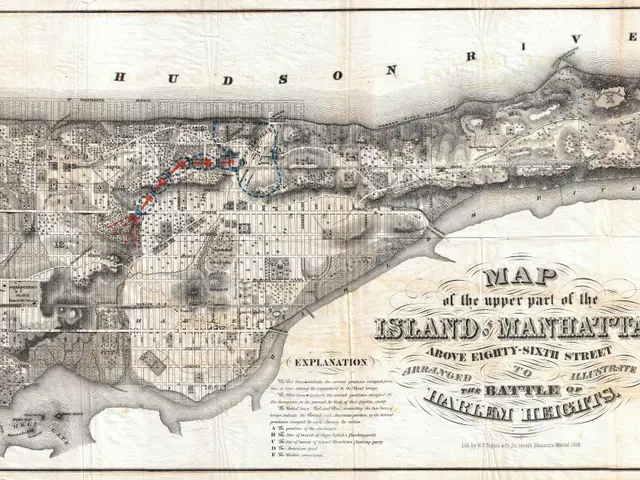Nuclear commitments being disregarded by Iran for nearly two decades, according to UN monitoring agency.
Tensions are heating up in the Middle East as the UN nuclear watchdog's board of governors has declared for the first time in 20 years that Iran is not complying with its nuclear obligations. This development comes as reports suggest Israel might take military action against Iran in the near future, without backing from the United States.
Iran maintains that it has permanently adhered to the safeguard obligations set by the International Atomic Energy Agency (IAEA). In response to this political resolution, Iran likewise announced plans to launch a new uranium enrichment site and implement additional measures, which it will reveal later.
Amidst this chaos, President Donald Trump is reportedly in advanced talks with Iran to create a diplomatic deal aimed at curtailing Iran's nuclear program. However, Trump's confidence in reaching an agreement appears to be waning.
Here's a bit more background on the tension:
- Iranian Spies in the Dock: Three alleged Iranian spies faced judgment at the Old Bailey.
- Iran's Near-Nuclear Arsenal Revelation: The UN watchdog found Iran has stockpiled near nuclear weapons-grade uranium.
- Ceasefire in Gaza? Discussions surrounding a ceasefire in Gaza are underway.
Iran, however, is firm in its stance on enriching uranium, defying US demands. Last week, Iran's Supreme Leader Ayatollah Ali Khamenei asserted that giving up uranium enrichment would be detrimental to Iran’s interests.
Controversy around Iran's nuclear program has been simmering for years, with Israel and the US concerned that Iran aims to develop nuclear weapons. They argue that the 2015 Iran deal, signed by President Barack Obama, which promised limitations on Iran's uranium enrichment, does not go far enough. President Trump withdrew from the agreement.
Recent negotiations aiming for a new deal have taken place in various capacities. Israel, fearing that any agreement would include provisions on uranium enrichment that it finds unacceptable, has suggested it may launch a unilateral strike on Iran's nuclear facilities. This move would mark a significant departure from the Trump administration's foreign policy.
With escalating tensions and the potential for unrest in the region, the U.S. State Department has authorized the evacuation of non-essential personnel from its embassy in Baghdad. Meanwhile, Israel has been making a strong case that it has the right moment to strike Iran's nuclear facilities, given Iran's political and military weakness. However, until now, pressure from the U.S. has prevented any such action.
Dr Burcu Ozcelik, a Middle East expert, emphasizes that there's a high level of psychological warfare tactics at play. One possible scenario is that the U.S. evacuation of embassy staff is a strategy to demonstrate readiness for military escalation, serving as leverage in negotiations. Another possibility is that a series of initial strikes against Iran may target non-nuclear sites to increase pressure and undermine Iran's negotiating position, particularly regarding zero enrichment.
In a nutshell, the stalemate between the U.S. and Iran over the nuclear negotiations is causing tensions to rise in the Middle East. Israeli military actions might provoke Iranian retaliation and lead to a further escalation. The U.S.' evacuation of personnel from its embassy in Baghdad could either be a warning sign or a tactic to increase the stakes. As the conversations continue, the situation remains uncertain, with the risk of miscalculation being high.
- The escalating tension in the Middle East, triggered by Iran's non-compliance with its nuclear obligations, has raised concerns about potential sanctions and air defenses, especially in light of Israel's rumored military action against Iran's nuclear facilities.
- Politicians and policy-makers are closely monitoring the ongoing war-and-conflict-related news, as the potential for a military clash between Israel and Iran could have far-reaching implications that warrant serious attention in the realm of politics.
- Given the increasing tension and potential for war, the general public is also keeping a keen eye on the developments, with many voicing their concerns over the possibility of air strikes leading to an escalation in the Middle East and possible retaliation from Iran.






